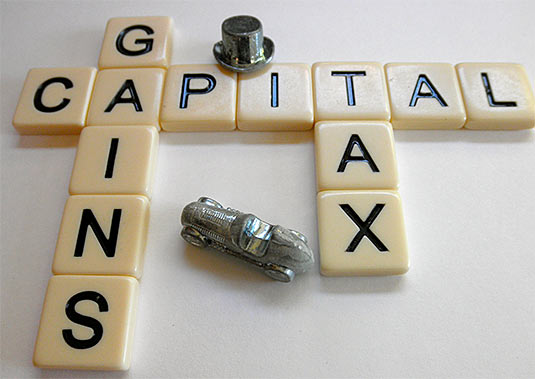So you sold a website in the last year? Or, maybe you’re just thinking about selling a blog that you’ve burned out on. Awesome, but like selling anything of value, you can’t escape taxes.
As you can imagine, tax laws are slow to keep up with the times, so very little information about selling a website or blog is actually available from the IRS.
1. Your Website Is a Tangible Good
A tangible good is defined as, “Having physical existence and/or form, or discernible through one or more senses.” According to this dictionary definition, a website is tangible, as it can be seen on a computer or device, and is made up of digital assets. Because of this, the sale of a tangible good can ge considered a “capital gain.”

2. Consider the Sale of a Website to Be “Capital Gains”
You know all of those wall street executives who make millions a year? They are mostly at a lower tax rate because much of their income comes from “capital gains,” or the money made from selling investments.
Another common form of capital gains are profits made from selling real estate. You could consider your website or blog to be virtual real estate.
3. Good News: The Capital Gains Tax is Less Than the Income Tax
The advantage of paying a capital gains tax on the sale of your website as opposed to considering it “ordinary income” is that capital gains are usually taxed at a lower rate.
The Current Capital gains tax is:
- 0% for the 10%–15% brackets
- 15% for the 25%–35% brackets
- 20% for the 39.6% bracket.
For example, if you are claiming $10,000 profit from the sale of a website and you are in the 25% tax bracket, you’ll could save $1000 or more classifying the sale as “capital gains.”

4. How to Determine the Cost Basis for Your Website
Essentially you’ll pay taxes on the difference between what the website cost to develop and maintain and the price you sold it for. In finding your basis for the site, consider these expenses:
- Cost of domain name, including the value of any years left on the domain
- Cost of site development the site: Did you pay someone to help you develop or design the site and logo? If you have a WordPress site, consider how much you paid for the theme and plugins.
- Don’t forget the cost of updates, or redesigns to the site – Besides the initial development, consider what you paid for the development of newer versions of your website
Remember that expenses that you previously paid like web hosting, brokerage or listing fees (on a site like Flippa or eBay) are considered ordinary business expenses. They may already be taken out of what you are paid for the site.
Also, don’t try to factor in previous years of expenses like domain renewals, as they don’t add value to your current website or blog.
5. Are Profits from the Website Taxed?
If you previously sold advertising, sponsored posts, or made affiliate income from the site, that is ordinary income and doesn’t affect what you pay on the sale of the actual website. You should get a 1099 for that taxable income.
6. An Example of Taxes Owed on the Sale of a Website
So, it’s always good to consult with your CPA, but here is a sample scenario of the taxes on the sale of a blog or website:
- Website sells on Flippa for a total of $6500 after listing fees
- The basis cost to create the website, including the domain is $2500
- The taxable amount is $6500-2500= $4000
- Seller is in the 25% income bracket, so they pay a 15% capital gains tax on the profit
- Seller of website owes $600 at tax time
I hope you made a lot of money from the sale of your website! Please comment below if you have anything to add to this topic. Also, note that tax laws can also change. I’m sure your accountant would be glad to answer any specific questions you have about your blog or website sale.
Related:
- Reporting capital gains: www.irs.gov
- Things you should know about capital gains tax: TurboTax.com
- 6 Ways to Sell a Website: Problogger.net
- Tax deduction ideas for Bloggers – mightytaxes.com


I sold a blog on Flippa this year, so thanks for all the info on taxes! I didn’t realize that websites are subject to capital gains tax.
I own a very popular sports website. I’ve been running it full-time for 15 years. Now we have a major, major company looking to buy us out and there are millions of dollars at stake.
Obviously I claim all of my expenses every year on my schedule C – servers, freelance writers, websites upkeep, travel, etc.
My accountant is confused and keeps telling me if I get 1 million just tor throw a number as an example, I would literally pay close to half in taxes (I live in Las Vegas so only federal).
That doesn’t sound right to me. He kept comparing it to a lottery winning, but I believe this is more like selling an investment property, no?